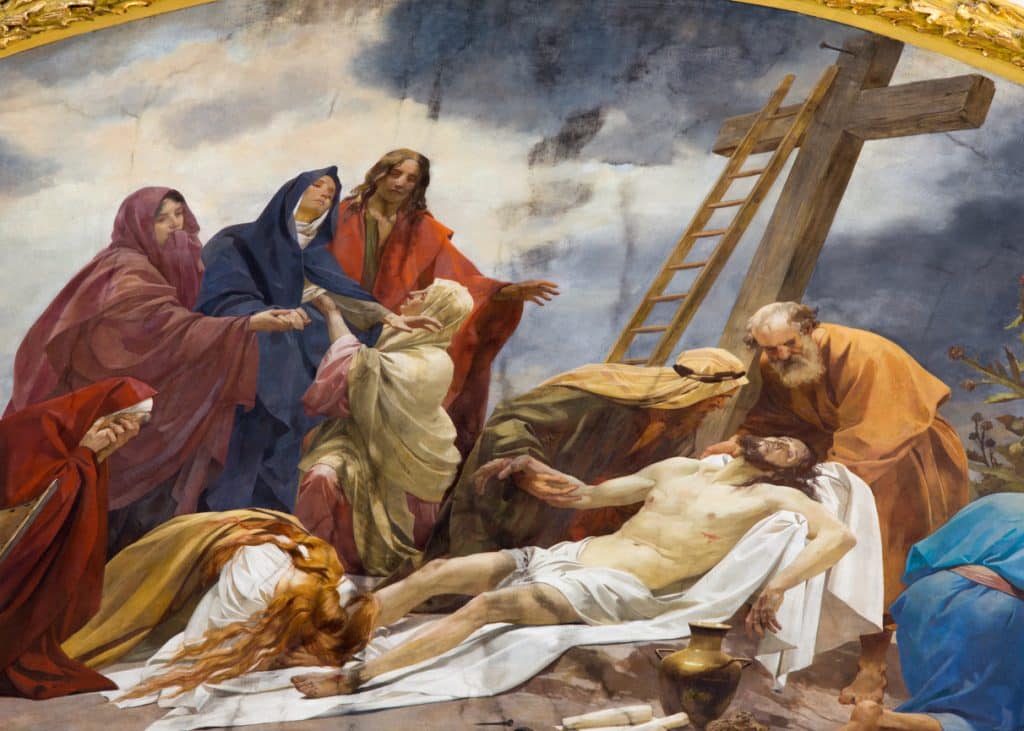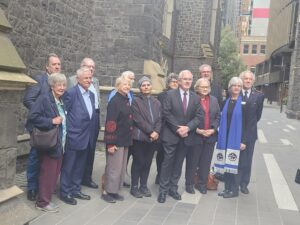
By Scott Harrower
13 August 2022
Last week I watched a friend’s band recently play an energetic and lyrically beautiful gig at a pub in Collingwood. People of all types and beanie lengths (a giveaway that it was Melbourne venue) jumped and lounged around happily. It felt like a celebration, one of those moments where God’s goodness could be appreciated. The creativity of the band and the audience reminded me of God’s life-giving influence to bring us fittingly alive to himself and one another by his Son and Spirit. The band’s music and lyrics powerfully evoked a sense of our life’s goal: safe union with God and his people, free from relational insecurity or distress. I wasn’t the only one who found the experience uplifting. Some of my pessimistic-about-life-after-COVID friends were there too. They had come, and surprisingly unburdened of some of their gloom, seemed to be as fully alive as they had all been in a while. It was great to see them so happy because the past few years seems to have primed against being open to new experiences and joy.
Nicodemus was primed to doubt that Jesus was God’s own savior. In John 3 we read about Nicodemus’ high standing in his own community of Jewish rulers, he was “the teacher of Israel” (verses 1 and 10). Darkness, both literal and figurative, shrouds Nicodemus’s religious struggles and his meeting with Jesus. He came at night, probably afraid to be seen with Jesus. He came to Jesus alone. Likely, “the teacher of Israel” felt alienated and ashamed by sneaking around and consulting a self-fashioned rural Rabbi. Because he goes to see Jesus alone, Nicodemus is shown to be an outsider within his own people group. His outsider-ness was surprising given that he was a member of the elite council that ruled the Jews. He was a well-educated Pharisee, waiting for God to bring Israel back to glory through a new king described on Psalm 2. This king would crush anyone who conspired against the Hebrew people, but ironically also bring about an age of safety. Through Israel’s history after the fall of David’s empire, this hope seemed lost. Where was the reign of the Prince of Peace? When would weapons be done away with as people focused on fruitful farms instead of war? And most crucially, when would Israel experience ongoing fruitful relationships and the presence of the holy God in their midst? Such a king had not come, instead John the baptizer and Jesus had electrified Israel. Nicodemus was confused because God’s history with his people, and their history with him were not playing out as expected. Today we would describe Nicodemus’ confusion along the psychological lines into “religious struggles”. These struggles are the “dark side” of religion, the pressures that believers suffer when our images of God, of his love and hoped-for attachments to him, don’t match up to our lived experiences, Exline and Pargament wrote in 2021.
Jesus speaks directly to Nicodemus’ religious concerns and distress, saying in verse 3 “No one can see the kingdom of God unless they are born again”. The good news is that God can do what we can’t: he can show himself and help us understand his surprising ways of extending his love to humanity, forgiving us, and giving us supernatural everlasting of life. If we start a new life, beginning again by the waters of baptism and by the Spirit of God then we can be drawn into God’s love. Jesus was saying that once we repent of sin and God begins to illuminate our perspective, then we can see what it looks like for us to understand, experience and live closely with himself. God can begin to resolve our religious struggles, far beyond what we could.
Read more: God remains in the most unexpected of places
Confused, having not yet having received the Spirit, Nicodemus asked how such a new start with God in a person’s mid-life was possible. Surely a person could not do such a thing: we cannot be re-born. Ironically, Nicodemus was right. Only God can give people a new life that understands God’s kingdom and God’s love. It is true that new birth into lifegiving union with God is an inter-personal life with him, which means that God shares his perspectives and perception with believers.
Perhaps the most important outcome of the gift of new understanding is a new perspective on God’s love embodied as Jesus laid down his life for his friends, which we read in John 15:13. Being born again by the waters that wash away sin and by the Spirit means we can begin to fully understand John 3:16’s claim that: “God so loved the world that he gave his one and only Son, that whoever believes in him shall not perish but have eternal life”. Jesus the wonder worker offers us the miracle of a new life-giving perspective on God’s love, a perspective that understands why he allowed himself to be crucified. In John 3:19-20 we read that God loves us so much that he intervened to save condemned people that prefer evil rather than light. The incarnate Son suffered the condemnation that all people deserve (verse 18), so that we might live within God’s delight and plain sight without sin’s guilt, shame and blindness (verse 20). Living with God in his love and light means those who are open to his Spirit will not perish but be fully alive to himself.
God’s works and ways may be surprising, and not the response we expected for relieving our religious struggles. But it is eye opening, we see what God is really like, we see that God’s love gives of himself for the practical good of others. While psychological sciences recognize a number of styles of love that are unhealthy such as idealised romantic or entertainment forms of love, what John 3 describes is recognized as the kind of love that has the other person in mind. Because God loved our corrupt and condemned world, he does not abandon us. He extends his life-healing love to us, offering light and love in the Son and Spirit through whom he made the world in the first place.
The Reverend Dr Scott Harrower is lecturer in Christian Thought at Ridley College, Parkville.
For more faith news, follow The Melbourne Anglican on Facebook, Twitter, or subscribe to our weekly emails.







